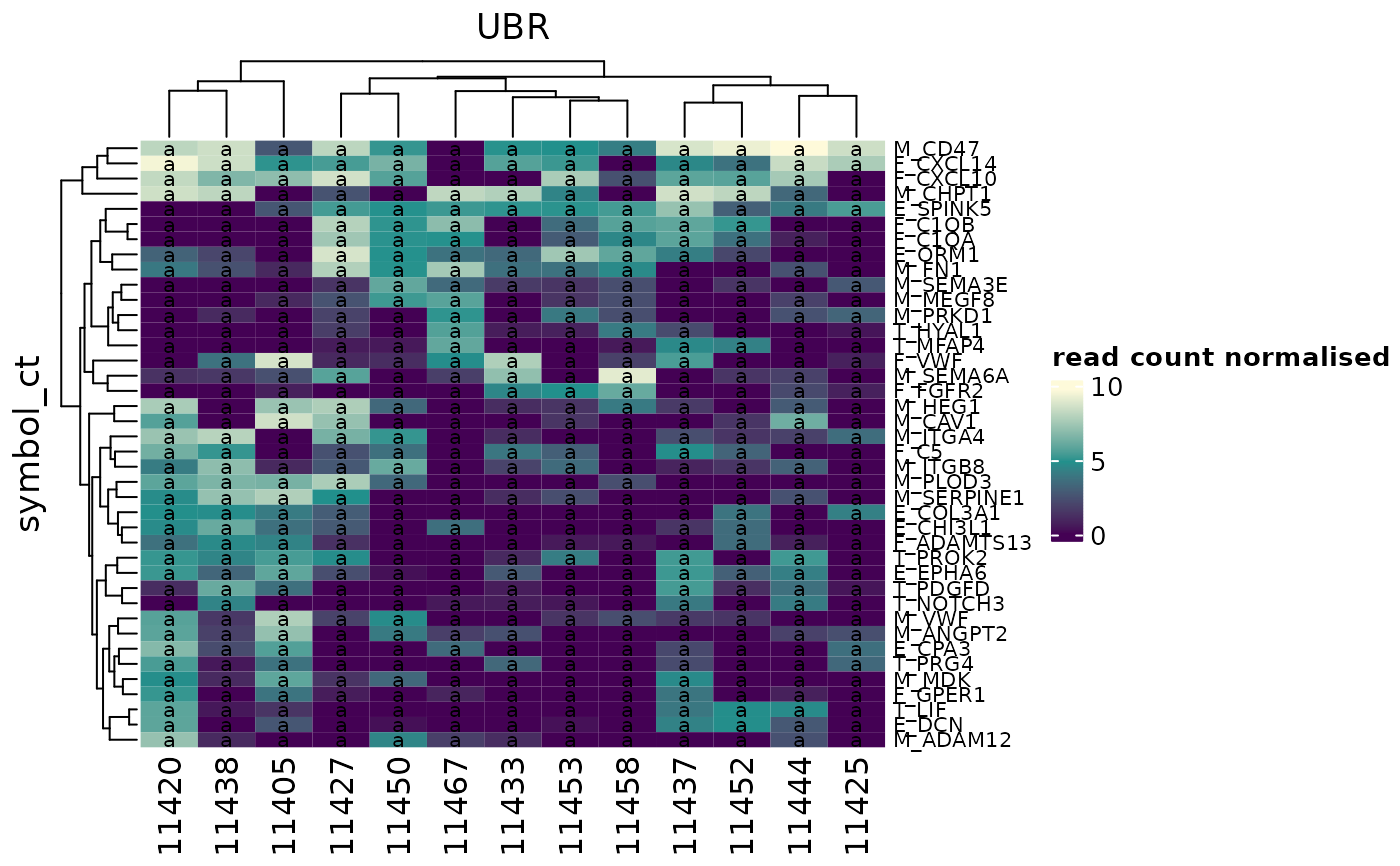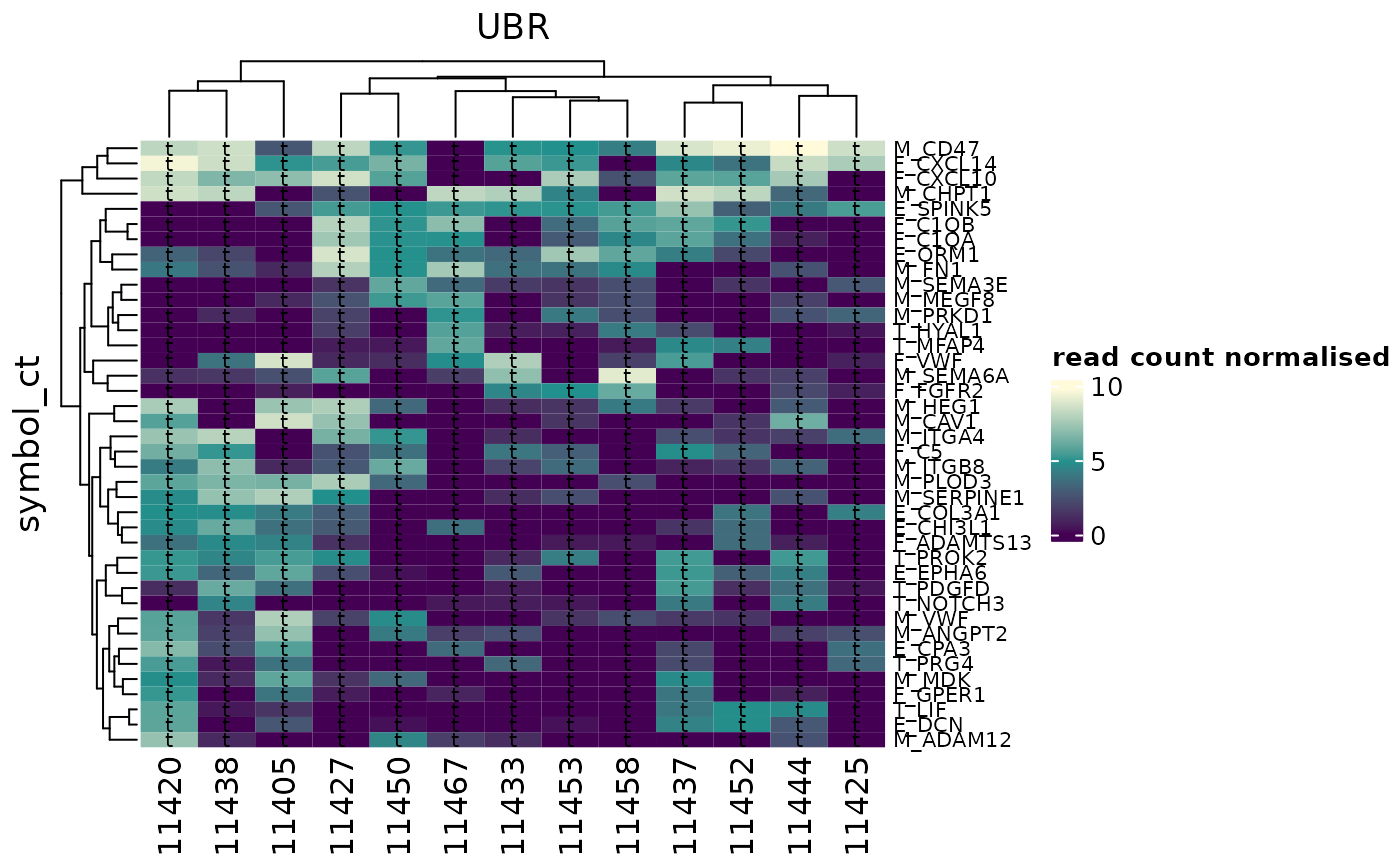Adds a layers of texts above the heatmap tiles to a `InputHeatmap`, that on evaluation creates a `ComplexHeatmap`
Source:R/methods.R
layer_text-method.Rdlayer_text() from a `InputHeatmap` object, adds a text annotation layer.
layer_text(.data, ..., .value, .size = NULL, .color = NULL)
# S4 method for class 'InputHeatmap'
layer_text(.data, ..., .value, .size = NULL, .color = NULL)Source
[Mangiola and Papenfuss., 2020](https://joss.theoj.org/papers/10.21105/joss.02472)
Arguments
- .data
A `InputHeatmap`
- ...
Expressions that return a logical value, and are defined in terms of the variables in .data. If multiple expressions are included, they are combined with the & operator. Only rows for which all conditions evaluate to TRUE are kept.
- .value
A column name or character string.
- .size
A column name or a double. The size of the elements of the layer.
- .color
A column name or character string. The color of the elements of the layer.
Value
A `InputHeatmap` object that gets evaluated to a `ComplexHeatmap`
A `InputHeatmap` object that gets evaluated to a `ComplexHeatmap`
References
Mangiola, S. and Papenfuss, A.T., 2020. "tidyHeatmap: an R package for modular heatmap production based on tidy principles." Journal of Open Source Software. doi:10.21105/joss.02472.
Examples
library(dplyr)
#>
#> Attaching package: ‘dplyr’
#> The following objects are masked from ‘package:stats’:
#>
#> filter, lag
#> The following objects are masked from ‘package:base’:
#>
#> intersect, setdiff, setequal, union
hm =
tidyHeatmap::N52 |>
mutate(my_text = "t") |>
tidyHeatmap::heatmap(
.row = symbol_ct,
.column = UBR,
.value = `read count normalised log`
)
hm |> layer_text(.value = "a")
 hm |> layer_text(.value = my_text)
hm |> layer_text(.value = my_text)
